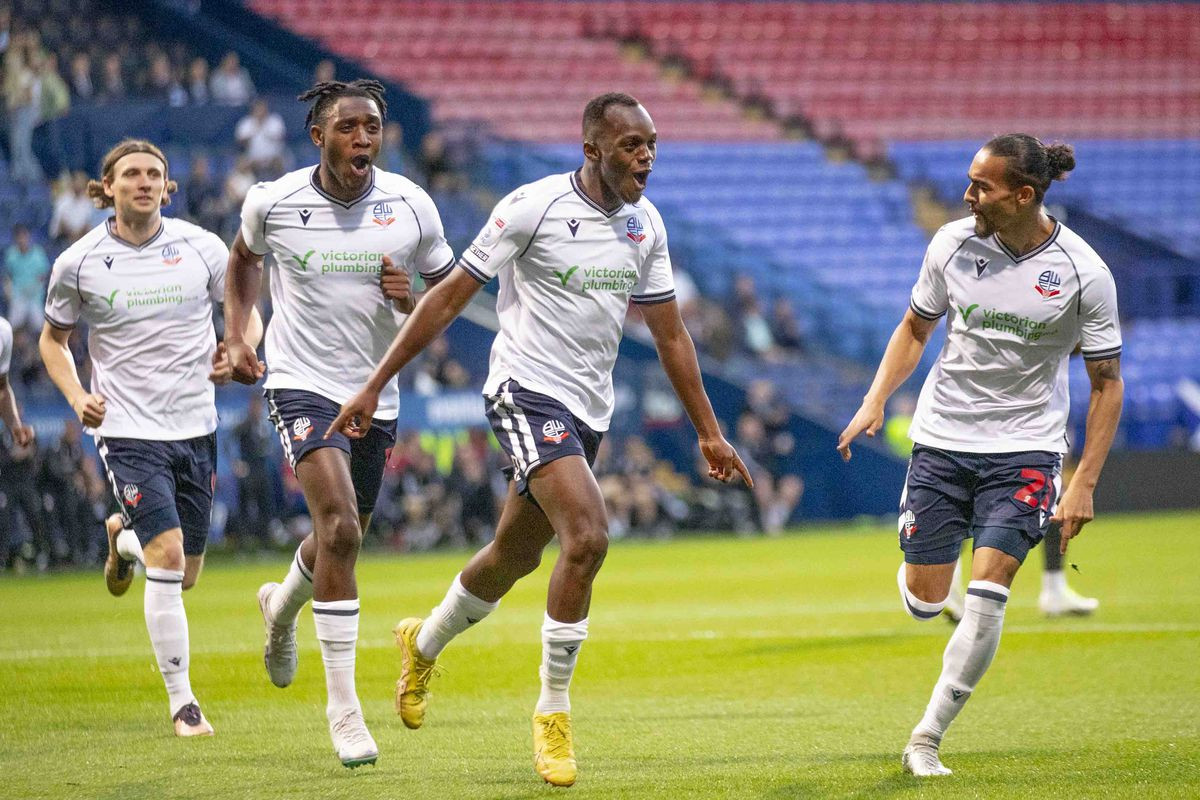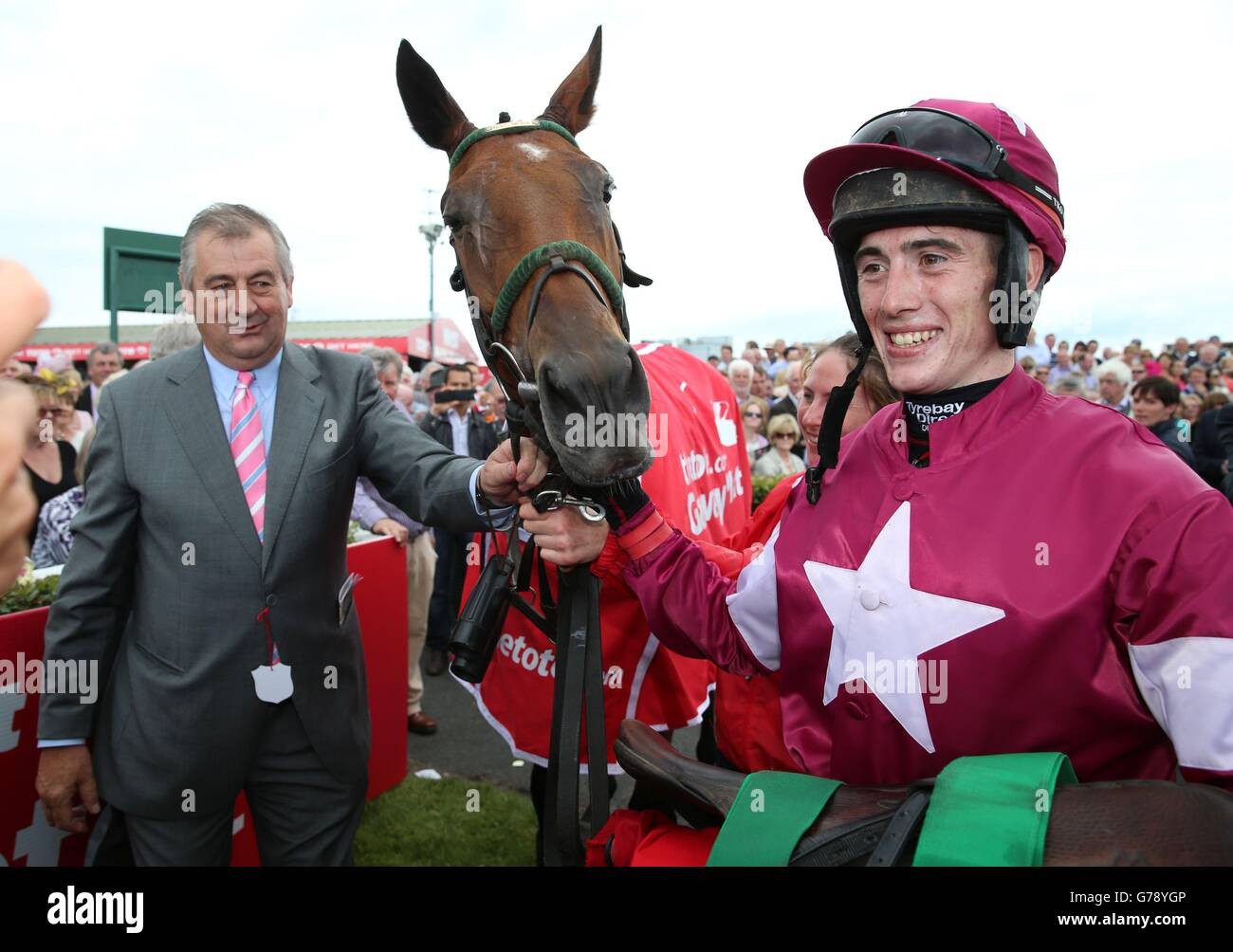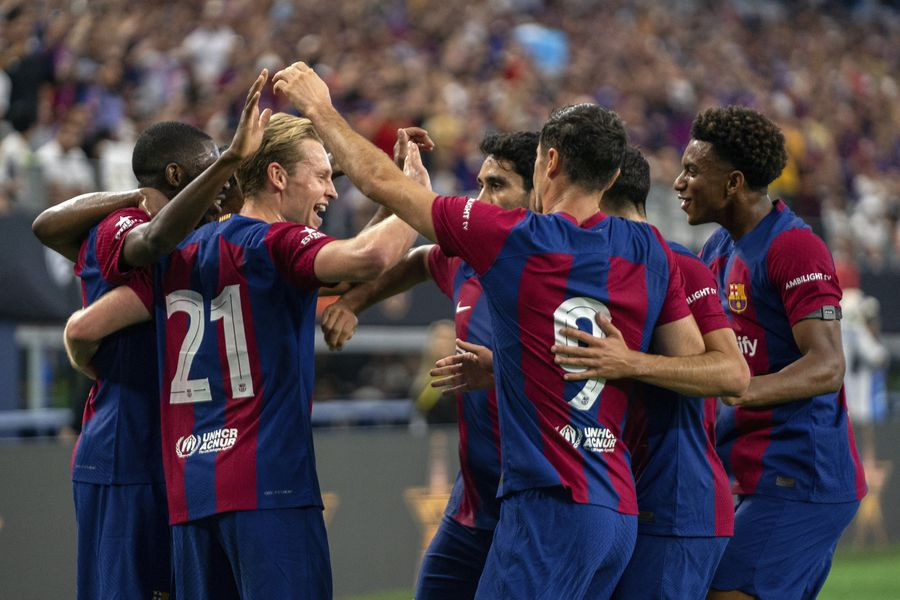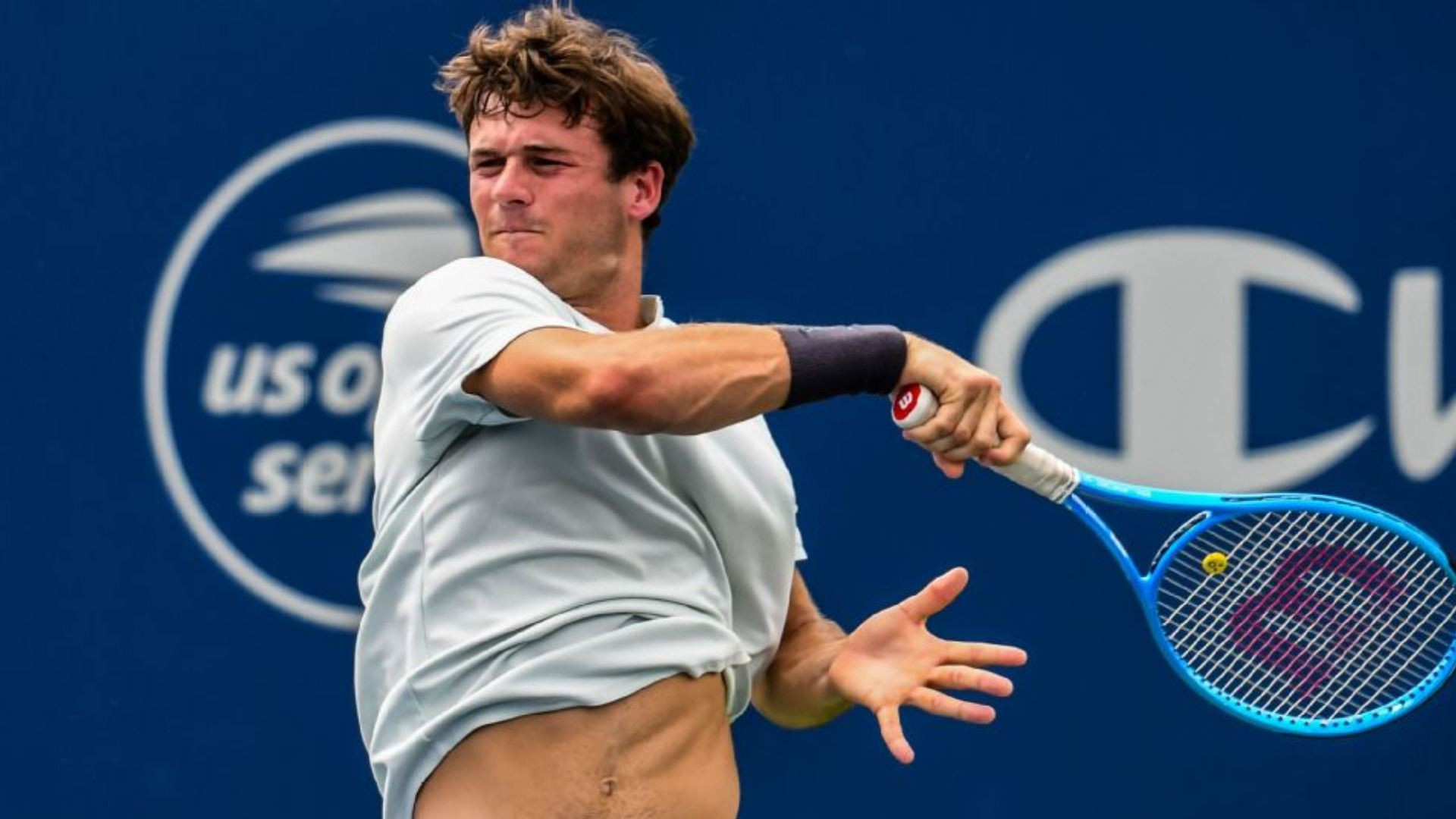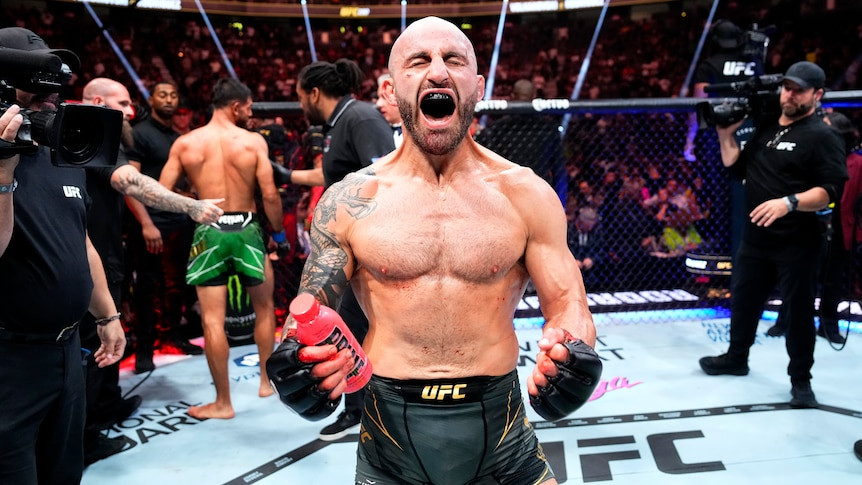The 21-year-old came off the bench in the 3-2 win at Barrow on Tuesday night after an injury to Jordi Osei-Tutu.
Matheson is still eligible to play for the B Team, although Ian Evatt revealed over the summer that the plan was to get the youngster more experience on loan providing Bolton can find the 'right' club for him.
Earlier this year, he had a spell at Bohemians in the League of Ireland to get more experience of senior football under his belt.
However, the player in question has also been attracting interest from abroad which has made negotiations more difficult.
Evatt confirmed last week that Carlos Mendes Gomes would be included as the versatile attacker continues his recovery from an Achilles injury suffered against Wigan earlier this year.
Will Forrester and Gethin Jones are both included. The former recently had surgery on a broken and dislocated toe, while the latter has also been sidelined by injury and is yet to feature this season.
Here is the full list of outfield players submitted to the EFL, with goalkeepers not included
A Club’s Resurgence
In attendance were 25,957 paying spectators. It was Bolton’s highest home crowd since January 2012, when they were a Premier League club and hosting Liverpool.
It reflects a sea change in Bolton Wanderers, first a sprint and now a steady climb towards complete recovery. Last week, Bolton celebrated their five-year anniversary of the takeover by Football Ventures, led – in terms of a public face at least – by chairperson Sharon Brittan.
The town has come with them. Three and a half years ago, Bolton had 8,500 season ticket-holders. Now they have almost doubled that number.
Five years ago, on August 27, 2019, Bury FC were expelled from the Football League and North West England lost one of its grand old clubs. The very next day, less than 11 miles away as the crow flies, Bolton Wanderers were saved from extinction.
If that sounds a little hyperbolic now, as time and football seasons haze the memory, know how close Bolton were to the padlock going on the door.
The club had entered administration and those administrators had warned that liquidation would follow in days. The EFL had given Bolton a 14-day deadline to complete a takeover or face expulsion; the takeover was on the verge of collapse.
The Darkest Days
During those last days of a mercifully ended era, receivers wandered around the buildings at the stadium, working out what the end may look like and how anything may be kept alive thereafter.
Meaningful discussions had taken place with the local university and council about the potential for a phoenix club, be that AFC Bolton Wanderers or similar. But they would have been starting from zero. The stadium would surely have closed.
Then, owner Ken Anderson was the “bad guy”. Anderson had become deeply unpopular with supporters for his use of the club’s website to attack them and deride any protests. The club’s players appealed to the Professional Footballers’ Association after they failed to receive wages.
Another club accused Anderson of negligence over broken promises surrounding a transfer and excellent local journalist Marc Iles had been banned from the club for apparently posting a “disrespectful” gif on Twitter.
Administration had been coming for a while. In September 2018, only a donation of £5m by former owner Eddie Davies – offered before he passed away – kept the lights on. But players had already effectively gone on strike, left with little choice over unpaid wages and bonuses.
When they issued a statement, Anderson criticised them openly. To end it all, Anderson was accused of hampering the eventual takeover even though its failure would kill the club.
The Road to Recovery
Very few people know nor love Bolton Wanderers as much as Phil Mason. More than 20 years ago, during the Sam Allardyce Premier League years, he was invited to volunteer as the club chaplain after performing a similar role at the Commonwealth Games in Manchester.
He then took on a full-time role within HR to manage staff well-being and became a trustee of the Community Trust, later becoming its chief executive. He’s now also Bolton Wanderers’ chief operating officer on top of his Community Trust role, and is the senior safeguarding manager of the club. Mason’s shared experience of those hardest months is bleak.
“There was a lot to pick up in terms of listening to people’s stories because they hadn’t been paid, they were behind with their mortgages or with their rent,” Mason tells i.
“In this office where I am now, I created a food bank for staff. It had food, toiletries, feminine hygiene products and necessary items for babies and small children. We even gave out vouchers for people to go and fill their cars with fuel to get to and from work.
“There was a lot of anxiety and pressure on all staff who continued to come to work during that period because they love their beloved club. With the Community Trust, the staff became one of our projects: the staff would get some take-home pay as an interest-free loan from the charity money and from people who were willing to support them.
“When they were in a position to pay us back, they would pay that back in various ways over a period of time.”
It’s impossible to overstate just how dreadful an experience supporting Bolton was back then. Days before the takeover was finally completed, and thus potentially the final home match in the club’s history, Bolton lost 5-0 at home to Ipswich in front of 5,454 supporters.
Because the administration had caused so many senior players to leave, Bolton’s matchday squad contained 12 players aged 18 or under. Many supporters could not support the regime. Football is supposed to be an escape.
But to truly understand the misery, know how long this period of absolute torment lasted. Between April 2017 and October 2020, a period of three-and-a-half years, Bolton won just 27 matches in all competitions. For three seasons in succession, they finished 21st, 23rd and 23rd in the league.
“That season was completely toxic on and off the pitch, though what played out on the pitch was completely understandable given what was unfolding behind the scenes,” says Ed Skelly, writer and editor for the fine Bolton Wanderers website Lion of Vienna.
“It’s one thing as a supporter to see your team sliding into oblivion, but it’s another thing when the entire backroom staff of the football club you support are resorting to food banks to try and get by. To not get paid for months on end is an abhorrent situation to be in and it’s one that unfortunately far too many people were in that year.
“If you were an outsider looking in, you may have noticed the poor results throughout the year, the protests that occurred or the occasional news of the club appearing in court. For Wanderers fans, it was a daily worry that the club was going to fold and cease to exist.”
Although there are few dissenting voices that Anderson was the man who exacerbated problems and took Bolton close to their own funeral, he merely mismanaged existing economic strife.
Bolton, that great cult hero team of English football in the 2000s, had overpaid on transfer fees and wages to keep the dream alive. After relegation from the Premier League and a failure to immediately gain re-promotion, the sums simply didn’t work.
A New Dawn
In 2014, it was announced that Bolton Wanderers had debts of £168.3m. To put that in perspective, the cost of building the then-Reebok Stadium was under £26m.
Combine wanton overspending, the decline on the pitch and an owner who managed to ostracise supporters, leave staff unhappy, could not arrest the approaching apocalypse and was accused by administrators of “using his position as a secured creditor to hamper and frustrate any deal that did not benefit him or suit his purposes”, and it is a mini-miracle that Bolton survived.
Bolton were saved because a group of very good people did very good things and were committed to seeing them through, even when a rocky path was turned into an assault course by everything they faced. Brittan is inspirational: the drive, enthusiasm and passion.
Michael James is a local businessman and Bolton supporter who wanted to do the right thing if he could. Nick Luckock’s work in assembling investment was instrumental. All three and others took a vast leap of faith not because they knew it would work, but because if there was even a chance it could then they had to take it.
Still, recovery is an exhausting and exhaustive process. Football Ventures may have avoided the worst news, but Bolton Wanderers were still in no shape at all. The supporters had lost all trust. Local businesses had lost all trust.
Staff were still hurting from the manner in which they – and their families – had been caught in the eye of the storm. Mason continues that analogy.
“I described it at the time as being rather like a tidal wave that had destroyed so much,” he says.
“When the news headlines move on from the shock and the awfulness of the catastrophic circumstances, people sometimes think ‘Well that’s fine – now the community’s okay again’.
“I described it that way to Sharon and to Michael. There’s all this debris on the beach and it still means clearing up. There’s all the relationships to heal with sponsors or former sponsors.
“There’s relationships to heal with supporters and fans. There’s relationships to heal with the town and the community because all that needed putting back into place.”
Seven months after the takeover was completed, the UK entered into the first Covid-19 lockdown and all football was suspended. Revenues, that Bolton relied upon more than most, stopped overnight.
Bolton were already in a new world, but any plans that had been put in place prior to the takeover, commercial strategies and team-building ambitions, had to be ripped up. Bolton may well be technically celebrating a five-year anniversary, but the reality was two years of coping and then three years of growing out of global (and thus financial, for EFL club) pandemic and economic despair.
Building a Stronger Foundation
The most enjoyable work, as Mason describes it, has been re-engaging with a local community that had been desperate to enjoy their relationship with Bolton Wanderers again. At every home game, there is a Fanzone that circles the stadium and is full of local food sellers and breweries.
There are now two bands of digital advertising at the front of the Toughsheet Stadium’s tiers. Opposition supporters may laugh at the name, but Toughsheet is a company based in Westhoughton, ten minutes’ drive away. Commercial revenue is up; shirt sales are up; attendances are up.
“The club now has a real affinity with engaging with the local community and the town as a whole,” says Skelly. “Bridges had to be mended with the local community as so many were burned during the previous ownership.
“You have to commend Sharon Brittan and everyone associated for the work they have done over the past five years. It is a different place again now.”
The guiding principle at Bolton now is a determination not to dwell on the past but to understand that history has to guide the future. Bolton Wanderers must never overreach financially again.
Brittan has been a national voice for the need for an independent regulator and greater wealth distribution to protect English football’s pyramid, speaking eloquently at the Select Committee on the issue. On a micro level she can control only her club.
Looking to the Future
The question is how you marry that with ambition. Bolton Wanderers have spent longer in the Premier League than six current top-flight clubs and 16 in the Championship. They have a stadium with 28,700 seats. They have played European matches against Bayern Munich, Sevilla and Atletico Madrid since 2006 and avoided defeat against them all. Football supporters, by their very nature, clamour success.
Firstly, relative success has clearly come. Bolton have finished in a higher position in each of the last four seasons, year on year. They were promoted in 2021 and only missed out on the Championship at Wembley in May.
There is an irony to the disappointment of that defeat, a team that didn’t perform in the play-off final: if you’re most worried about what’s happening on the pitch, it’s a compliment to how far you have come off it.
Also, nearly all Bolton supporters get it. As Skelly says, there is a determination not to run too fast. A seven-figure signing arrived this summer for the first time in over a decade. Swiss investment has allowed greater investment and Bolton can compete with most in League One, but other clubs have spent big this summer and that is their choice.
If that brings trouble their way eventually, trouble is the one thing Bolton must avoid. Nobody can go through all of that again.
The idyll here is a mix of the two, though: accountability and sustainability not as guiding tenets of existing, but as an instigator of growth because it takes a town and a fanbase with you. Mason discusses other clubs in higher leagues who have managed that. And the further that the wretched recent history disappears into the rear-view mirror, the more real that can feel.
“We take sensible decisions,” Mason says. “We have got to be very clever about how we select the potential players and how we recruit. But we’ve got ambition. We were all disappointed to have missed out last season and everybody recognised that.
“We have got those aspirations to try and strive again. We’ve invested in the squad and are investing in the infrastructure of the training ground to move up that one notch again.”
Which all matters when a season gets underway, and football teams wrestle to be part of a promotion picture come the turn of the year. Ian Evatt, the manager, will be under pressure to deliver another higher-placed finish. Succeed and Bolton will go up this season.
But it’s not really about that, not really. Seasons come and go but social institutions should never. This is about a football town having a football club and believing that it always will.
It’s about the smiles that Mason says he sees on the faces of some who used to come to his office for food parcels. It’s about permanence and everything else is noise. It’s about your sheer existence as a pillar of your meaning and the gratitude for those who fought hardest to ensure it.




